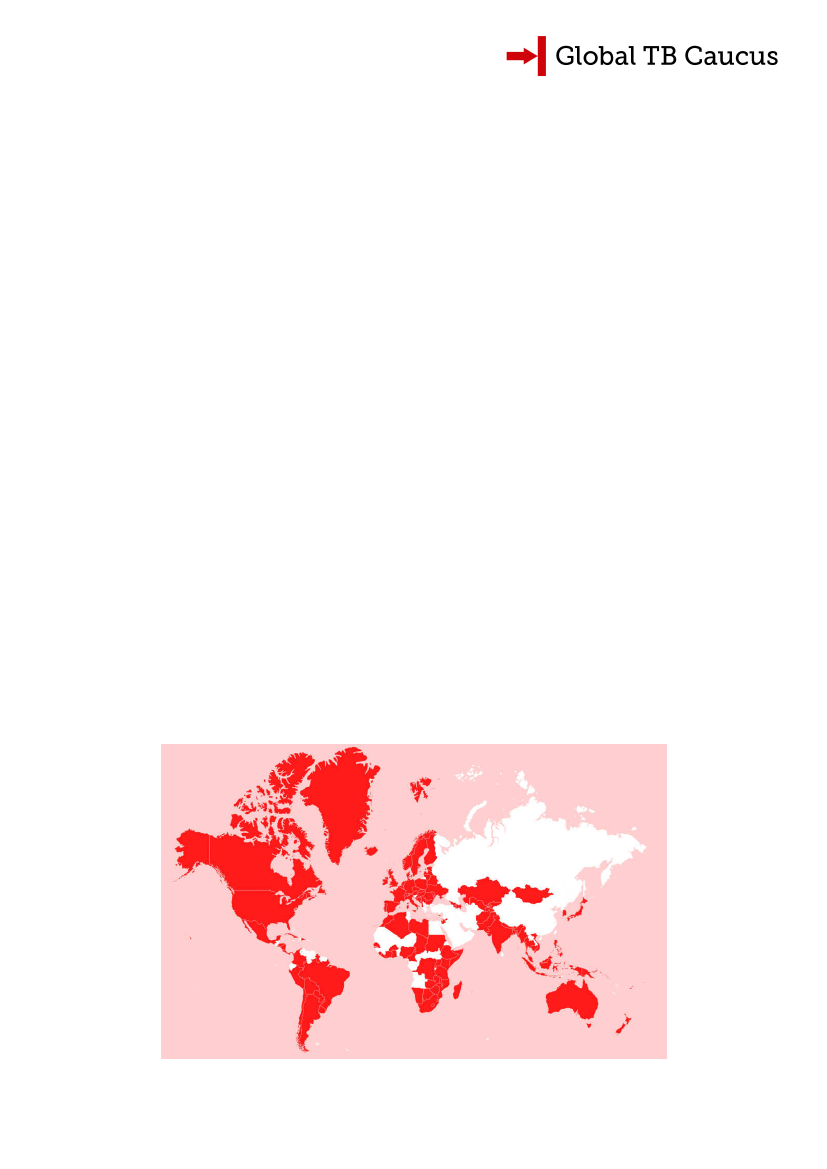
Introduction to the Global TB Caucus
Headlines
TB kills more people every year than any other infectious disease; more than HIV and malaria
combined. It is an airborne bacterial infection that is transmitted when a sick person coughs or
sneezes. It predominantly attacks the lungs but can be found anywhere in the body. Eliminating TB
by 2030 is one of the targets in the Sustainable Development Goals (SDGs) agreed by world leaders
in September 2015. At the current rate of progress that target will be missed by 180 years.
Political leadership and the Global TB Caucus:
Diagnosing and treating TB is difficult, but it can be done. Many countries have outdated or
incomplete policies for tackling the disease, and others systematically underinvest in the epidemic.
In high-income countries development assistance money is not invested in the TB epidemic to the
same degree as other infectious diseases, and public money is needed to kick-start the development
of new drugs, diagnostics and vaccines.
Political leadership against TB is critical to tackling the disease. For that reason, Nick Herbert MP
and the South African Health Minister, Dr Aaron Motsoaledi, launched an international network of
parliamentarians in October 2014 known as the Global TB Caucus. To date, the Global TB Caucus is
the world’s largest network of parliamentarians on a single issue, counting 2,400 members from
over 134 countries.
The Global TB Caucus:
•
Is non-political and non-partisan, it is open to any parliamentarian anywhere in the world to
join.
•
Committed to high-burden countries leading the response against their own epidemics,
through increased funding and the implementation of better policies.
•
Committed to driving investment in research and development from countries with world-
leading scientific institutions such as the UK.
•
Driving political leadership at every level, from the Heads of State at G20 level, right down
to local councillors and elected representatives.
•
Using its convening power to bring together key stakeholders to find solutions to one of the
world’s most intractable health challenges.
The Global TB Caucus Secretariat is independent and accountable to the members of the Global TB Caucus. It is hosted by RESULTS UK, a
UK registered charity.